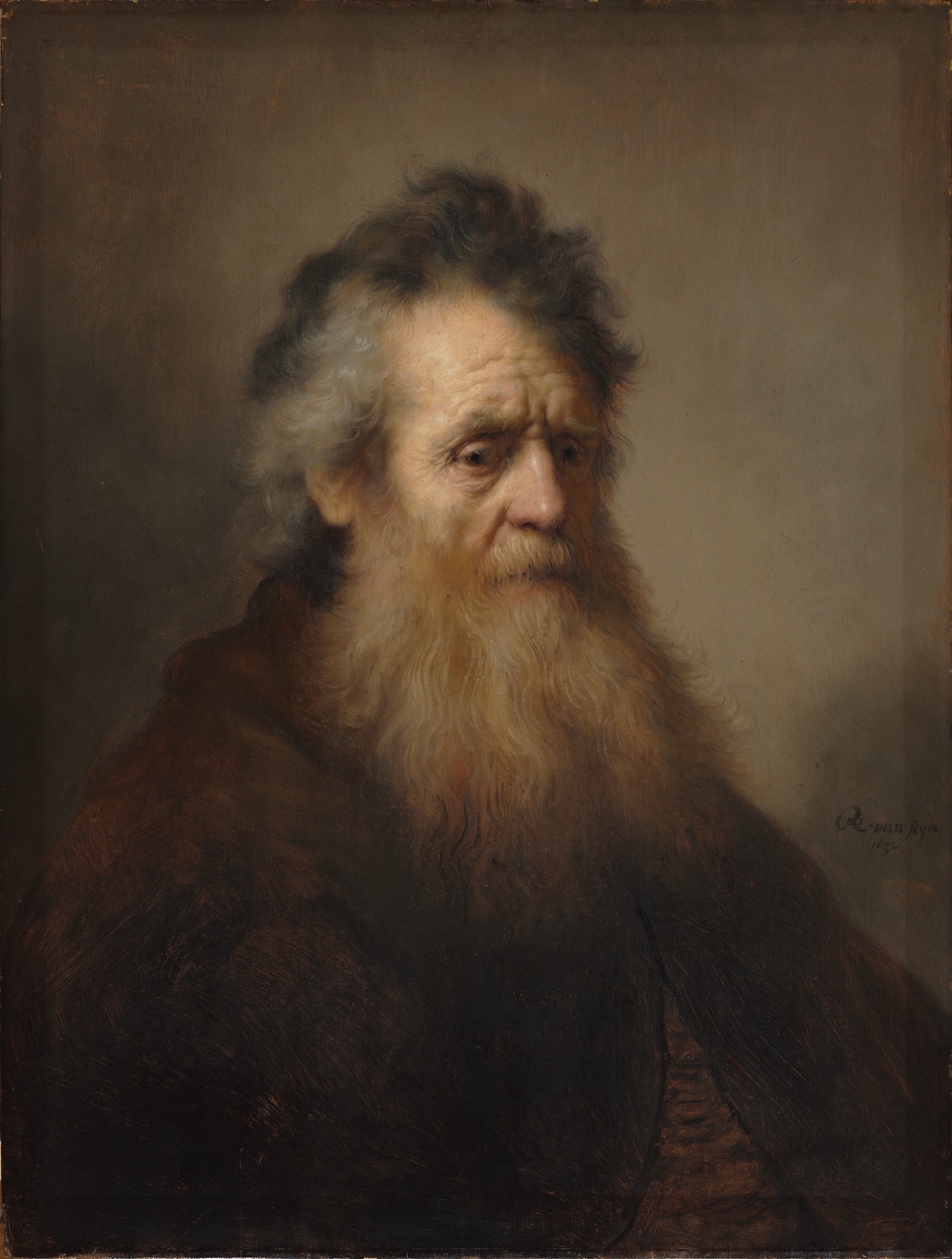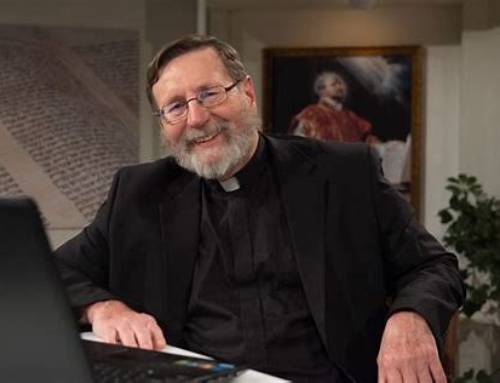In my early sixties now I guess I qualify as an “older priest” so I’m biased.
That being said, I’m thinking increasingly that one of the solutions to the clergy sex abuse problem is to look again at who we ordain and when we ordain them.
Of course everybody loves to see a young man, fresh out of seminary, smiling, handsome, trim and fit and ready to serve the Lord. We love to see him brimming with enthusiasm and idealism, and we shouldn’t forget that St Paul mentored SS Timothy and Titus and St Peter and St Paul mentored St Mark–all of whom they called their “sons” in the Lord. There is no to bar young men from ordination, but I think we should re-evaluate what seems to be the default position that men in their late teens and twenties are the best choices for ordination.
When you consider the tradition of junior seminaries where boys of middle school and high school age were groomed for the priesthood the question marks become even more prolific.
Here are some of the problems: the formation of boys into men is an increasingly tricky business. The process used to be straightforward: a boy’s masculinity was formed by a combination of protection and mentoring from the older men in his family. Fathers, grandfathers, uncles, big brothers and older cousins in the extended family helped to show a boy what it meant to be a man. Same sex institutions like Boy Scouts, sports teams, the priesthood and altar servers helped form the boy’s values physically, mentally and spiritually.
That system has broken down for a variety of reasons: the extended family has disintegrated due to increased mobility, smaller families and the suburban family unit. Feminism has undermined traditional sexual roles and a range of changes has weakened even the typical family structure. As a consequence there is a crisis in masculinity and a crisis in the formation of masculinity.
All male institutions and traditions have helped, but when those same institutions become lurking places for deviant sexual behavior they have exactly the opposite effect. Once the YMCA became the YMGA its salubrious effect became salacious. If the Boy Scouts became infested with men who were scouting for boys the whole mission was subverted. Suddenly “camping” had a whole new meaning.
Likewise if seminaries went lavender they ceased to be seedbeds of saints and became hot beds of sinners. Boys and young men were corrupted and their masculinity was diverted and perverted.
One of the deeper problems in all of this is that some kinds of homosexual behavior indicate that the man is locked into adolescence. One of the causes of some homosexual behavior is a failure to negotiate a developmental stage of life successfully. The man who is attracted to teen aged boys may have lacked proper male friendships in his teenage years, or he may have been bullied and excluded by the male gang, and this failure in a crucial developmental stage develops into an obsession with teen boys. He is, if you like, still trying to find the teen friends he never had.
The behaviors of Cardinal McCarrick and some of the other abusers, for example, indicate a stunted emotional life and a lack of mature masculinity. Messing about at a beach house, camping out, drinking too much and playing sex games? That’s the sort of thing silly boys do, but most guys who did play around with their buddies outgrow it. BTW- I’m not condoning those behaviors, but just observing that when they happen most boys get over it and grow up.
When they don’t, their immaturity becomes pervasive and abusive.
If there is a significant subset in the clergy of men who are behaving in an immature way–men whose masculinity is malformed, then I suggest a greater emphasis on ordaining men later in life is one of the solutions.
Stop to consider for a moment that the word “priest” is taken from the Greek “presbyteros” which means “elder.” In the New Testament the priests were “elders”. Listen to St Paul’s instructions on choosing men for ordination from I Timothy 3–remembering that in the early church there was no distinction between “priest” and “bishop”.
The saying is sure: whoever aspires to the office of bishop desires a noble task. 2 Now a bishop must be above reproach, married only once, temperate, sensible, respectable, hospitable, an apt teacher, 3 not a drunkard, not violent but gentle, not quarrelsome, and not a lover of money. 4 He must manage his own household well, keeping his children submissive and respectful in every way— 5 for if someone does not know how to manage his own household, how can he take care of God’s church? 6 He must not be a recent convert, or he may be puffed up with conceit and fall into the condemnation of the devil. 7 Moreover, he must be well thought of by outsiders, so that he may not fall into disgrace and the snare of the devil.
The overall impression is that the men selected for ordination will be tested, mature men who know how to lead a family and are therefore qualified and respected to lead the family of God.
There is much talk about having married priests or allowing priests to marry. I don’t think this is the right way forward at all. Marriage does not immediately make a man mature and any Protestant can tell you that married ministers can be just as much of a disaster as a badly formed celibate man.
What does sound good however, is for more older, tested and mature men to be considered for ordination, and if some of them are married–so be it. Ordaining such men would be in perfect keeping with the apostolic recommendations quoted above.
So the criteria would not be whether they are married or not, but whether they are mature, tried and tested men–men whose personalities are not stunted, but who have a good knowledge of themselves and a realistic understanding of the church and the world.
Their being married should not be a qualification for ordination, but neither should it be a barrier.
This is a good idea on many fronts. Consider:
- An older man is more likely to be financially secure and independent. While he makes the usual promises of obedience to the bishop he will not be trapped in the culture of dependency and subservience to the bishop. His loyalty and obedience would be more of a trusted senior counselor and colleague instead of a cowering dependent.
- While the older man’s financial independence means he is not subservient to the bishop it also means that he will not be a financial burden to the diocese.
- An older man brings life experience. He probably knows how to survive in the real world and realizes that life is tough. If he is mature he will be both compassionate with the suffering and firm with the weak willed.
- If the older man is married he and his wife will provide an example and mentoring to young men and women as they form families in the church.
- Because a man is married does not preclude him from being homosexual nor does it mean he will not be an abuser, but tested married men are less likely to fall into these traps.
- Older married men may help to be whistle blowers when they see abusive situations developing.
- If the older man is a widower or a divorced man (who has received a decree of nullity) he will bring wisdom and experience to the difficulties of marriage and family life.
- An older married man will help to mentor the young priests and support them in their vows of celibacy.
- Older men will help to break the “inside circle” and exclusive club of the celibate priests.
- We are all living longer. A man in his late forties or early fifties may have a good thirty or forty years to serve the church.
- The large number of older permanent deacons are already waiting in the wings, and although a crisis in vocations is not the reason for such a decision, it would certainly help the church’s ministry to have more hands on deck.
The suggestion of ordaining viri probati–tested older men–has been discussed at the highest levels of the church many times. I am of the opinion that the time is ripe for the church to delegate this decision to the local bishops’ conferences and let the bishops petition Rome on a case by case basis for the ordination of tested married men. Of course, it is beyond my pay grade, but speaking from my own experience, I’m glad that, by God’s providence, I had to wait ten years after my conversion before I was ordained at the age of 50.
If such a decision were to be taken we would have to consider the possible negativities:
- There may be a drop off in young vocations. Younger men would say, “I think I’ll get married and have a family and then volunteer for the priesthood when I’m in my late forties.” Maybe this would happen, but would that necessarily be a bad thing?
- The celibate priesthood would eventually disintegrate. Maybe or maybe not. As things develop it would be wise to adopt the Eastern Orthodox discipline in which celibate men are monks. It is not good for man to be alone. Celibates would belong to religious communities and minister together as a team.
- Married priests would be expensive. Errm…the payouts for abusive celibate priests has not been cheap has it?
- What happens when priest’s marriages go wrong? Can it be worse than when a man’s vocation to celibacy goes into a nosedive and ends up in therapy for drugs, drink or sexual abuse?
- Who will look after clergy wives after divorce or death of the priest? The priest will look after his own wife, and if need be the diocese will pitch in just like they do for the other dependents of clergy–like elderly parents who sometimes come to live and rectory.
Would such an arrangement work? It already is.
I’ve been a married Catholic priest now for twelve years, but one of the most curious things is that during this time–although I know from highly placed sources–that the question of ordaining older men (some of them married) has been discussed no one has bothered to ask me and my wife–and the people of my parish–how it works and what we have learned.
So go figure.







It is strange that no one has asked your input. That’s one of the things about bishops that annoys me.
Our parish has 3 permanent deacons and two more in formation. At least three of those would be excellent priests. They are already functioning in many ways as clerics except for Sacraments requiring a priest.
Your proposal is excellent. Ordaining married men, especially older ones also provides a good example for so many boys who have no fathers in their homes. I think there might be a lot of young men who would seek ordination because they have a mentor they feel they can trust.
This practice has worked well with the Anglican and Episcopal priests received into the church and ordained and for the Ordinariate, it’s time to look at it.
Good idea.
Ps I know if I asked Mrs L she’d say differently, but it seems like you are always right.
If I was running a business, I would agree with nearly every proposal given above. BUT, we are talking about the Church Christ Himself established with promises He would not let it fail even it was attacked, as it has been many times these past 2,000 years.
So, any discussion of what to do to increase EFFECTIVE vocations, should make reference to what has already been written on the subject. On March 25, 1992, Pope John Paul II, now a Saint no less, published an Apostolic Exhortation, PASTORES DABO VOBIS, On the Formation of Priests in the Circumstances of the Present Day. I think there are other high level analyses of the pros and cons of celibacy.
Before we advocate change, let us first state the current way and whether we are living up to that way. And if not, what should we do to live up to standard set. St JP II seems to be a pretty good standard. How we doing?
Admitting some older men who are married would not be a change, but an expansion of already existing provisions. It would also not affect the good stuff you mention here.
I am good with ordaining older men. married or not, to be priest if all the other traits are present.
I had 2 separate careers – airborne radar operations and then public pension fund auditor. Blest with good health I worked from age 14 to 69, 43 years full time and 12 years part time.
In a universal Church there are older men who have the energy and intellect to be capable priests.
I like the idea of ordaining older, married deacons. They have stood the test of time and are much less likely to go off the rails. Something has to be done to rid the Church of the awful sins we have been reading about.
Don’t feel bad that no one has asked you about how things are working out for you. That happens in many businesses as well. Decisions are made at a high level and no one bothers to check with people who are actually the ones where the rubber meets the road.
In virtual total agreement with everything stated in the article, not in agreement with ordaining married deacons into the Priesthood. I have always held out as an example of waiting and ordaining men after they have learned to accept responsibility and failed a few times or learned life’s lessons, a very respected Priest/Msgr who graduated HS, then college, served as a Naval Officer in the North Atlantic for four years during WW2, returned from the war and worked for his family’s insurance agency for two years and THEN entered the Seminary. From personal experience this well respected Msgr never would have gotten the chance to enter the Seminary during the Disco Era when it was all about the Minor Seminary as the training ground.
As the subject of immaturity has come up several times lets look at hairstyles and how some Priests from the Disco Era remain virtually alone in male society as being unable to move on from perms. Take a look at Priestly hairstyles of the 50’s, 60’s then 70’s and 80’s and tell me there were no changes going on in the Seminaries. Ordaining older Priests, yes.
Ordaining Deacons no. Too many Deacons (Catholic) I have encountered are what I deem Chia Priests. Take a Deacon, just add water and ABC – 123 you have a Priest, no you don’t. Too often I have seen Deacons grinning like Cheshire Cats as they are mistaken for Priests because of their vestments, leading people on and basking in the adoration. I think there is a much larger role for the laity in our Church but the gray area or better than nothing role some Deacons play is all too often not inspiring. I don’t want to paint deacons with a broad brush, the best Deacons out perform average and below Priests, but they are not the answer to the shortage of Priests in my opinion.